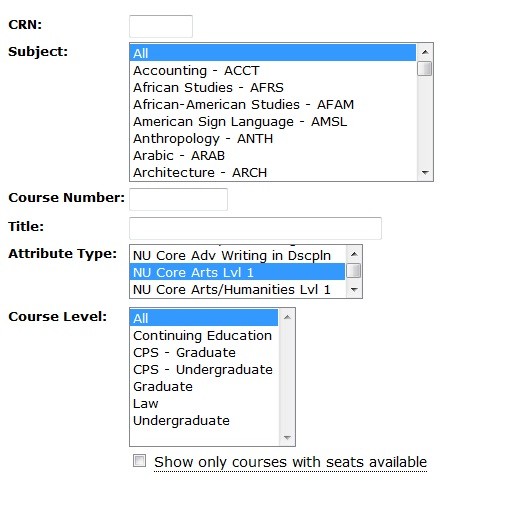Core Courses
Post on: 26 Апрель, 2015 No Comment

Business Ethics for Accountants and Auditors
This course considers all facets of business ethics issues within an accounting and auditing context. Ethical theory, corporate social responsibility, and individual decision-making are considered. Some of the applied topics that may be covered in this course include, but are not limited to, intellectual property issues, corporate downsizing, outsourcing, global ethics, crises management, and employment ethics.
Financial Statement Analysis for Accountants and Auditors
This course provides a framework for using a firm’s financial statements to perform a comprehensive analysis of the firm’s operating performance, cash management, and financial position as well as to value the firm and to detect earnings management. It includes an overview of the accounting and auditing standard setting framework, and the relevance of U.S. GAAP as well as International Financial Reporting Standards (IFRS) to accounting recognition, measurement, presentation, and disclosure. The course also identifies the analytical relevance of a selected set of more advanced accounting topics (e.g. valuing employee stock options).
Advanced Managerial Accounting and Control Systems
This course focuses on topics that emphasize the role of managerial accounting in a firm’s overall management planning and control structure. A key concern is to show how effective organizations ensure that the parts of the organization work together to create the whole, and how the sum of the parts, through synergy, can indeed be greater than the whole. This course has three specific objectives: (1) to ensure students’ understanding of how planning and control systems can assist management in the attainment of the organization’s strategic, as well as non-strategic, objectives; (2) to acquaint the student with the types of cost management systems typically required by management, and how the information is normally accumulated, reported and utilized; and (3) to explore the design of planning and control systems to facilitate effective decision-making. Through lectures, class discussions, and case studies, the course examines such topics as target costing, value chain analysis, activity-based costing, balanced-scorecard, accounting versus economic rate of return, and residual income (and its variant called economic value added).
Business Communications for Accountants and Auditors
This course focuses on the art of communication and its effects on people, organizations, and other stakeholders. The course will focus on two aspects of business communications: persuasion and effective presentations. The objective for the persuasion sessions is to have students improve upon their day-to-day oral business communications skills. This will be accomplished as participants learn to tailor each communication to the person or people with whom they are speaking.
Information Security, Audit and Control (Required only for Internal Auditing Track)
This course builds on basic information technology (IT) courses, focusing on key issues including IT security, IT controls, and IT auditing. The course addresses issues such as auditing a computer information system; assessing risks; identifying control objectives; identifying appropriate audit procedures; learning the concepts and basic features or audit software thereby providing the tools for choosing audit software; conducting an operational audit basic controls over computer information systems; and developing world-class IT control frameworks.
Forensic Accounting/Auditing
This course provides a theoretical background and practical application of fraud examinations and corporate investigations. The course includes fraud prevention, detection, investigation, and related matters such as courtroom procedures. Also considered are topics such as FCPA and securities fraud. A wide variety of teaching tools are used.
Essentials of Negotiation
This highly experiential course will improve students’ negotiation skills and capacity to acquire and effectively use bargaining power. By using a variety of assessment tools, feedback sources, skill-building exercises, and exercise debriefings, the class will increase students’ negotiating self-confidence and improve their capacity to claim value and achieve win-win solutions to individual, team, and organizational problems. The course is designed to enhance students’ negotiating self-confidence and improve students’ analytical and decision-making skills (e.g. understanding bargaining zones, knowing when an agreement can be made and when to walk away; learning how to prepare for negotiations), interpersonal skills, creativity (e.g. identifying creative solutions to conflict), and persuasive abilities.
Leadership and Human Resource Management for Accountants and Auditors (Required only for Internal Auditing Track)
This course develops the concepts, frameworks, and skills that are important to be effective leaders and to successfully manage human resources. Topics for discussion include: Creating a motivating and empowering environment; leadership attributes, power and effective influence; building effective decision-making; strategic management of human resources; specification of the skills and competencies requisite for job success; recruiting and selecting employees to fit the job and the organization; measuring, appraising and improving performance. All of the topics selected for discussion are critical ones that every professional needs to know, regardless of functional area (not just HR professionals), and will help students become more effective consultants, managers and leaders.
INTERNAL AUDITING TRACK
Internal Auditing I: Conceptual and Institutional Framework
This course provides students with an overview and basic understanding of internal auditing. Internal audit’s role in internal control, risk management, business processes and risks, and Sarbanes-Oxley, Section 404 compliance efforts are considered. Internal auditing is presented as an integral part of effective corporate governance. Examples of assurance and consulting activities undertaken by the internal audit function, as well as the sourcing strategy (i.e. full in-sourcing, co-sourcing or full outsourcing models) are discussed. Students are introduced to internal control theory, test design concepts and internal auditing best practices.
Internal Auditing II: Internal Audit Application and Practice
This advanced internal auditing course contains an in-depth coverage of the internal audit process. Students receive experience in planning and conducting internal audit assurance and consulting engagements. Also, students build on the theory and techniques introduced in Internal Auditing I, through practical, in-depth coverage of specific audit areas. Other matters covered include audit evidence, work papers, audit sampling, and communicating of engagement results. Internal auditing case studies are used to reinforce the learning process.














